#reusing detergent bottles
Explore tagged Tumblr posts
Text
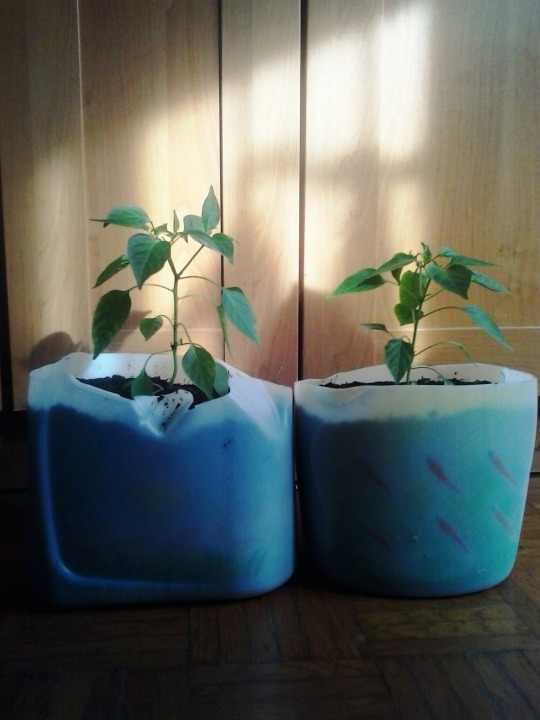
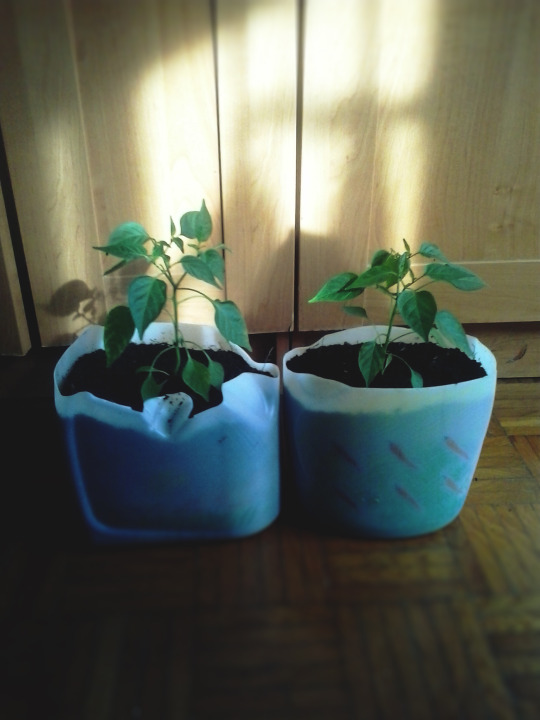
I am ridiculously happy about these; I've been saving this one big laundry detergent bottle for years, and I was planning to cut it up and put a hot pepper plant in it, but, I had 2 hot pepper seedlings. Then I randomly found another, similar detergent bottle abandoned outside! I cut them up to make them into planters, and, it's not very visible on the picture, but I grabbed colored pencils and drew on them for decoration. You might be able to see little hot peppers drawn on the right one! The left one has a meadow with grass and flowers. They're more visible in reality and they both look so cute. Not to mention the plants look happy and eager to grow, I had just transplanted them and they had no visible stress on them. Looking forward to little baby peppers!
#hot pepper plants#seedlings#container plants#diy containers#reusing detergent bottles#i think it was the fabric softener to be exact#i stopped using it a while ago#soil is from the forest#it's all free plant growing#seeds were taken out from a random hot pepper
11 notes
·
View notes
Text
The Ultimate Guide to Zero Waste: Simple Steps to a Cleaner Planet

Why Zero Waste Matters More Than Ever
Let’s be real—our planet is drowning in trash. Landfills are overflowing, plastic is choking our oceans, and fast fashion? It’s an environmental nightmare. But here’s the good news: we can do something about it.
March 30th is International Zero Waste Day, a global wake-up call to rethink the way we consume and dispose of things. So, are you ready to make a real difference? Let’s dive into what zero waste is all about and how you can join the movement!
The Waste Crisis: The Hard Truth (And Why It’s Time to Act)
Every year, we dump billions of tons of waste into the environment. And guess what? It’s getting worse.
By 2050, municipal solid waste could hit a whopping 3.8 billion tons if we don’t change course.
2.7 billion people still don’t have proper waste collection. Imagine all that trash just sitting there.
The fashion industry alone is responsible for 8% of global greenhouse gas emissions. Yikes.
Every single second, a garbage truck’s worth of clothes gets burned or buried in landfills.
The textile industry gulps down 215 trillion liters of water every year. That’s a lot of wasted H2O.
We can’t afford to keep living like this. So, what can we do? Let’s start by tackling one of the biggest culprits: fashion.
Fashion’s Dirty Little Secret: Your Clothes Might Be Polluting the Planet
Yep, that cute $10 t-shirt you bought last week? It has a hidden cost. The fast fashion industry is a major contributor to pollution, and we’re all part of the problem. But the good news? We can also be part of the solution.
Here’s how to make your wardrobe more sustainable:
Buy Less, Choose Better – Invest in quality pieces that last instead of cheap, throwaway fashion.
Repair & Repurpose – Got a tear? Fix it. Outgrown a piece? Upcycle it into something new.
Shop Second-Hand – Thrift stores and clothing swaps are gold mines for unique finds.
Support Ethical Brands – Look for companies that use sustainable materials and fair labor practices.
Fun fact: If you double the life of your clothes, you can cut their carbon footprint by 44%. That’s huge!
Zero Waste Living: Small Changes, Big Impact
The idea of going “zero waste” might sound extreme, but it’s really about making simple swaps that add up over time. Here are some easy ways to cut down on waste:
Ditch Single-Use Plastics – Reusable water bottles, coffee cups, and shopping bags are your new best friends.
Compost Your Food Scraps – Less waste in landfills, more nutrients for the soil. Win-win.
Choose Better Packaging – Look for products with biodegradable or recyclable packaging.
Refill, Don’t Repurchase – Many stores now have refill stations for shampoo, detergent, and even snacks.
Swap Disposable for Reusable – Stainless steel straws, cloth napkins, and silicone food bags are game-changers.
These little shifts might not seem like much, but trust me—they make a massive difference.
The Big Picture: How Businesses & Governments Can Step Up
Let’s be honest—consumers can only do so much. Big businesses and governments need to step up too. Here’s how they can help:
Businesses Should:
Design products that last (instead of ones that break in a year).
Switch to circular business models, where items get reused, repaired, or recycled.
Invest in sustainable materials and reduce waste from production.
Governments Must:
Hold companies accountable with Extended Producer Responsibility (EPR) laws.
Regulate toxic chemicals in manufacturing.
Invest in better recycling infrastructure.
If businesses and policymakers do their part, we’ll have a much better shot at tackling this crisis.
International Zero Waste Day: A Global Call to Action
Every year on March 30th, the world comes together to shine a spotlight on zero waste. This initiative, led by the United Nations, supports the 2030 Agenda for Sustainable Development, particularly these two key goals:
SDG 11: Making cities and communities sustainable.
SDG 12: Ensuring responsible consumption and production.
Governments, businesses, and everyday people (like you!) are encouraged to take action against waste. And guess what? It starts with small, everyday choices.
Ready to Join the Zero Waste Movement? Here’s How You Can Start
You don’t need to be perfect. Just start somewhere. Here are a few easy ways to reduce waste in your daily life:
✅ Say no to single-use plastics ✅ Compost your food scraps ✅ Support brands that prioritize sustainability ✅ Spread awareness—talk to friends and family about zero waste ✅ Take the Zero Waste Pledge and commit to small but meaningful changes
🌍 Together, we can create a world where waste is minimized, resources are valued, and our planet thrives. 🌍
Ready to take action? Pledge to reduce waste today!
Final Thoughts: Let’s Be Part of the Solution
We can’t ignore the waste crisis any longer. But instead of feeling overwhelmed, let’s take action—one step at a time. Whether it’s swapping out plastic bags for reusable ones, repairing your clothes, or encouraging businesses to be more sustainable, every effort counts.
Let’s stand together for zero waste and a healthier planet.
🔗 Share this article and spread the word!
4 notes
·
View notes
Text
Supplier of PET Bottle Scrap Washing Line
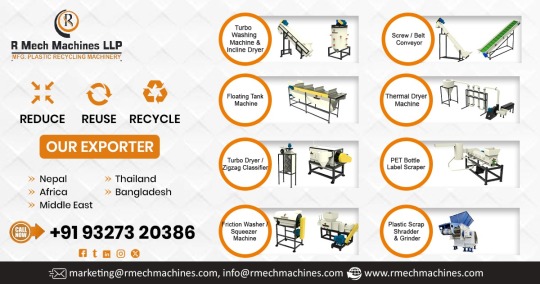
R Mech Machine LLP is a leading and prominent Manufacturer, Exporter and Supplier of PET Bottle Scrap Washing Line in Jharkhand and Odisha. Our manufacturing unit is based in Ahmedabad, Gujarat, India. R Mech Machine LLP provides PET Bottle Scrap Washing Line, HDPE/PP/PVC/PPCP Scrap washing line, LDPE/PP Film Scrap Washing Line. We design our machines for high performance, durability, and versatility to meet the ever-growing demands of the global recycling industry. We engineer this line to process post-consumer PET bottles into clean PET flakes, ideal for reuse in textiles, packaging, and more. This washing line efficiently processes rigid plastics like detergent bottles, milk jugs, and industrial plastic waste into clean, recyclable granules. We specifically designed it for handling soft plastics such as agricultural films, shopping bags, and packaging films. Features: Automated Control System: Smart PLC-based control panels for efficient and user-friendly operation. High-Efficiency Friction Washers & Float-Sink Tanks: Advanced washing technology ensures optimal separation and cleaning. Stainless Steel Contact Parts: Rust-resistant and food-grade compliant components. Energy-Efficient Design: Optimized motors and low-energy consumption systems reduce operating costs. Robust Construction: Built with premium-grade materials to ensure durability in demanding environments. Benefits: Superior Cleaning Efficiency: Delivers high-purity output with minimum residual contamination. Reduced Labor Costs: High degree of automation minimizes manual intervention. Flexible Input Material Handling: Capable of processing mixed, colored, and printed plastic waste. Minimal Water Usage: Closed-loop water systems ensure reduced water consumption and better environmental performance. Long Service Life: Heavy-duty design and minimal maintenance ensure consistent long-term operation. Return on Investment: Increases profitability through efficient plastic recovery and resale. Applications & Uses: Textile Industry Packaging Sector Film Extrusion Injection Molding Waste Management Firms FAQs Q1: What materials can be processed in a single washing line? A1: We offer both mono and multi-material configurations, depending on the customer’s input material and end use. Q2: Can your lines be customized to fit space constraints? A2: Yes, our engineers design modular systems tailored to specific space and capacity requirements. Q3: What is the typical installation time? A3: Depending on complexity, installations take 20 to 60 days from the date of site readiness. Q4: Do you offer operator training? A4: Yes, we provide comprehensive on-site or remote training with detailed operational manuals. R Mech Machine LLP is a Supplier of PET Bottle Scrap Washing Line in Jharkhand and Odisha including locations Ranchi, Jamshedpur, Dhanbad, Hazaribagh, Bokaro, Deoghar, Koderma, Giridih, Garhwa, Gumla, Bhubaneshwar, Cuttack, Rourkela, Angul, Mayurbhanj, Puri, Sambalpur, Brahmapur. Contact us today for a free consultation or a quote. View Product: Click here Read the full article
0 notes
Text
Everything You Need to Know About PET Bottle Manufacturers
PET bottles have become an essential part of everyday life, used for packaging everything from water and soft drinks to oils, shampoos, and household cleaners. But have you ever wondered who’s behind the scenes making these versatile containers? That’s where PET bottle manufacturers come in — and their work is far more fascinating than it seems at first glance.
Let’s dive into the world of PET bottle manufacturing and explore how these companies are shaping sustainable packaging.
🧴 What Are PET Bottles?
PET stands for Polyethylene Terephthalate, a strong yet lightweight plastic that’s ideal for food and beverage containers. PET bottles are:
Durable and shatter-resistant
Recyclable, making them an eco-conscious option
Clear and lightweight, allowing brands to showcase their product and cut shipping costs
These features have made PET bottles the go-to choice across multiple industries.
🏭 The Role of PET Bottle Manufacturers
PET bottle manufacturers specialize in designing, producing, and supplying PET containers in various shapes and sizes. Their role includes:
Material sourcing: Choosing high-grade PET resins
Designing bottle molds: Customizing shapes, sizes, and finishes
Production: Using blow molding machines for mass production
Quality control: Ensuring bottles meet food safety and industry standards
Sustainability efforts: Incorporating recycled materials and reducing carbon footprint
🔧 The Manufacturing Process
Creating PET bottles is a multi-step process that combines precision and technology:
Injection Molding: PET resin is melted and shaped into preforms (test-tube-like structures).
Blow Molding: Preforms are reheated and blown into molds to form the final bottle shape.
Cooling & Ejection: Bottles are cooled quickly and ejected from molds.
Trimming & Inspection: Extra plastic is trimmed and each bottle is inspected for defects.
This process ensures uniformity, clarity, and strength in every bottle produced.
🌍 Focus on Sustainability
With increasing environmental awareness, PET bottle manufacturers are taking steps to minimize their impact on the planet. Here's how:
Using recycled PET (rPET): Many bottles today are made with partially or fully recycled materials.
Lightweighting: Reducing plastic usage without compromising strength.
Eco-friendly production lines: Investing in energy-efficient machinery and reducing water waste.
Circular economy efforts: Promoting bottle return and reuse programs.
📦 Industries They Serve
PET bottle manufacturers work with a wide variety of industries, such as:
Food and Beverages: Water, soft drinks, juices, oils
Personal Care: Shampoos, lotions, body washes
Pharmaceuticals: Liquid medicines and supplements
Household Products: Cleaners, disinfectants, and detergents
Each sector has unique requirements, and manufacturers customize bottles accordingly — from tamper-evident caps to UV-protected resins.
🧠 Final Thoughts
PET bottle manufacturers may work behind the scenes, but their role is vital in delivering everyday products safely, efficiently, and sustainably. From innovation in design to a strong push for eco-friendly practices, they’re constantly evolving to meet consumer and environmental needs.
0 notes
Text
5 Creative Ways to Reuse Plastic at Home
As the world increasingly recognizes the urgent need to address plastic waste, finding practical eco-friendly cleaning ways to reuse plastic at home can contribute significantly to sustainability efforts. Rather than simply discarding single-use plastics, we can get creative and give these materials a second life. Here are five innovative ideas for repurposing plastic in your everyday life. Eco-Friendly Planters One of the simplest and most effective ways to reuse plastic is by converting old containers into vibrant planters. Plastic bottles, yogurt cups, and even detergent containers can be transformed into stylish herb gardens or flower pots. Start the eco-friendly cleaning by cleaning out the container, cutting it appropriately, and adding drainage holes. Storage Solutions Plastic containers can be an excellent storage solution in every home. Instead of tossing out food storage containers, jars, or cases, utilize them to organize household items. Use them to store small tools, craft supplies, or even children’s toys. Labeling these containers helps you keep things tidy and accessible. DIY Bird Feeders Engaging with nature is a fulfilling and sustainable practice. You can turn your empty plastic bottles into bird feeders to attract local wildlife. Simply cut openings in the bottle, fill it with birdseed, and hang it outside. Not only does this reuse plastic, but it also provides food for birds, contributing to local biodiversity. Upcycled Art and Crafts Unleash your inner artist by using old plastic items to create unique crafts. From bottle caps to plastic bags, the possibilities are endless. You can make colorful flower garlands, artistic wall decorations, or even sculptures. This not only reduces waste but also inspires creativity in children and adults alike. Set aside a day for family art projects that focus on reusing plastic materials, making it a fun and educational experience. Compost Bin If you’re interested in composting, consider using plastic bins for your compost pile. Old storage bins or trash cans can be converted into composters, allowing you to recycle food scraps and yard waste. Just be sure to drill holes for airflow and keep the lid on to maintain moisture. These five options are just a starting point—let your imagination guide you! By finding new purposes for plastic, we can contribute to a healthier planet, reduce waste, and promote sustainability right from our own doorstep. If you need a professional eco-friendly house cleaning service in San Francisco, book our teams at GreenTerra!
#cleaning#eco-friendly cleaning#cleaning tips#eco-friendly#green cleaning#house cleaning#cleaning services#house cleaning services#san francisco
0 notes
Text
Top 10 Eco-Friendly Products for Everyday Use

Introduction: Why Eco-Friendly Products Matter
In a world increasingly aware of environmental issues, switching to eco-friendly products has become more than a trend—it's a necessity. Eco-friendly products reduce carbon footprints, conserve resources, and promote sustainable living. Whether you're looking to minimize plastic use or support ethical brands, incorporating green alternatives into your daily routine can lead to meaningful change.
Common Misconceptions and Challenges
Despite the growing popularity of eco-conscious living, several myths persist:
Myth 1: Eco-friendly products are expensive. While some green products have a higher upfront cost, they often last longer and save money in the long run.
Myth 2: Sustainable alternatives are hard to find. Thanks to increasing demand, most eco-friendly items are now widely available online and in stores.
Myth 3: Green products don’t perform as well. Innovations have led to sustainable options that match or exceed the performance of traditional products.
Challenges:
Lack of awareness or misinformation
Greenwashing (false claims about sustainability)
Limited access in some regions
Top 10 Eco-Friendly Products for Everyday Use
Here are ten sustainable swaps that can make a big impact:
1. Reusable Water Bottles
Why it matters: Reduces single-use plastic waste
Tip: Choose stainless steel or BPA-free bottles
Top Brands: Hydro Flask, Klean Kanteen
2. Bamboo Toothbrushes
Why it matters: Biodegradable alternative to plastic brushes
Tip: Replace every 3 months just like traditional brushes
Top Brands: Brush with Bamboo, The Humble Co.
3. Compostable Trash Bags
Why it matters: Break down naturally in landfills
Tip: Look for certified compostable materials (BPI or TUV)
Top Brands: BioBag, UNNI
4. Reusable Shopping Bags
Why it matters: Cuts down plastic bag usage
Tip: Keep a few in your car or purse for convenience
Top Brands: Baggu, ChicoBag
5. Solar-Powered Chargers
Why it matters: Harnesses renewable energy
Tip: Ideal for travel and emergencies
Top Brands: Anker, Goal Zero
6. Eco-Friendly Detergents
Why it matters: Reduces chemical runoff into waterways
Tip: Choose plant-based, biodegradable formulas
Top Brands: Seventh Generation, ECOS
7. Beeswax Food Wraps
Why it matters: Replaces plastic wrap
Tip: Wash with cold water and reuse for up to a year
Top Brands: Bee’s Wrap, Etee
8. Recycled Paper Products
Why it matters: Saves trees and water
Tip: Look for 100% post-consumer recycled content
Top Brands: Who Gives a Crap, Seventh Generation
9. Energy-Efficient Light Bulbs
Why it matters: Consumes less energy, lasts longer
Tip: Switch to LEDs for maximum efficiency
Top Brands: Philips, Cree
10. Low-Flow Showerheads
Why it matters: Conserves water without sacrificing pressure
Tip: Look for WaterSense certification
Top Brands: Niagara, High Sierra
Proven Strategies and Best Practices
Start Small: Swap one item at a time to avoid overwhelm.
Do Your Research: Verify sustainability claims.
Support Local: Buy from eco-conscious local businesses.
Educate Others: Share your journey to inspire others.
Future Trends and Expert Predictions
Experts predict significant growth in the following areas:
Biodegradable packaging will become the norm.
Circular economy models will drive product design.
Smart home tech will integrate with sustainability goals.
Eco-subscription boxes will gain popularity for convenience.
According to GreenBiz, the eco-product market is set to grow by 25% annually over the next five years.
Final Takeaways
Switching to eco-friendly products is a powerful way to contribute to environmental sustainability. Small daily changes compound over time, creating a lasting impact. Start with the items you use most and build from there.
Frequently Asked Questions
Are eco-friendly products more expensive?
Not always. Many save money over time due to durability and efficiency.
How can I verify if a product is truly eco-friendly?
Look for certifications like USDA Organic, Fair Trade, BPI Compostable, or Energy Star.
What is the easiest eco-friendly switch to start with?
Reusable water bottles or shopping bags are great first steps.
Do eco-friendly products really make a difference?
Yes! Even small changes help reduce waste, conserve resources, and promote better health.
#SustainableDinnerware#CompostablePlatesUSA#EcoFriendlyTableware#PalmLeafPlatesWholesale#EcoDisposablePlatesEurope#DisposableArecaLeafPlates#ArecaLeafPlates#ArecaLeafPlateSuppliers#NaturalPalmLeafPlates
1 note
·
View note
Text
Price: [price_with_discount] (as of [price_update_date] - Details) [ad_1] STEELO introduced in India in 2007 with the new concept of PET Jars & bottles with Steel Cap. We are specialised in PET Bottles & Containers. Our Range consists of PET Jars, PET Bottles & PP Bottles. We were the first company in India to introduce TRITAN Bottles. We are known for Our Unique Designs & Consistent Quality. All our Designs are registered in India in Our Name. Our primary focus is to deliver Quality & Timely services to all our Stakeholders. Steelo Since 17 Years making high-quality storage articles. Ergonomically designed and compact size allow for easy storage of the containers making it easy to place them in cabinets and fridges. Keep the freshness alive with Steelo’s 100% food grade and BPA Free, US FDA Approved PET Material used. All containers are made of high-quality food-grade, reusable material. The durable body makes them perfect for daily use. The durable design allows you to store things comfortably without worrying about your containers cracking, denting, or leaking. Containers are not intended for one-time use but can be hand washed and reused. Durable for everyday use, safe and reliable. The durable body makes it leak and impact-resistant. Painted and versatile designs by Steelo give the uniqueness you require. the containers are reusable and the plastic can be recycled multiple times, reducing our environmental footprint. All products containing recycled materials meet the same quality and safety demands as we have on all our products. 100% Food Grade and BPA Free, US FDA Approved PET Material - Crafted with high-quality BPA-free,100% recyclable, and reusable. Free from harmful phthalates and toxins the Jar containers are made with US FDA-approved PET material. Bottom Material PET, Cap is made of PP Material Refrigerator and Freezer Safe - The Jar containers are freezer safe the design of Jar containers allows them to occupy less space and fit in the smallest place in the fridge or shelves and making them easy to carry. The product is heat resistant for up to -20 to 60 °C. Heavy Duty and Unbreakable - Heavy gauge and heavy jar lid making it leak-proof. A wide mouth, tight-fitting lid, and compact body ensure ease in pouring liquids with no spills. The heavy-duty material makes it crack proof and dent proof. Patented Designs and Versatile Jar Containers - Stylish designs that suit your needs with our painted designs by Steelo give the uniqueness you require. The Jar containers are designed to make your life easier. Our airtight storage technology and food-grade material keep food fresh. These easily stackable airtight storage containers make space-saving possible Easy to Wash and Maintain - Jar Containers with wide openings are easy to clean and maintain, use a mild detergent or dish wash liquid and clean on the inside with a brush. [ad_2]
0 notes
Text
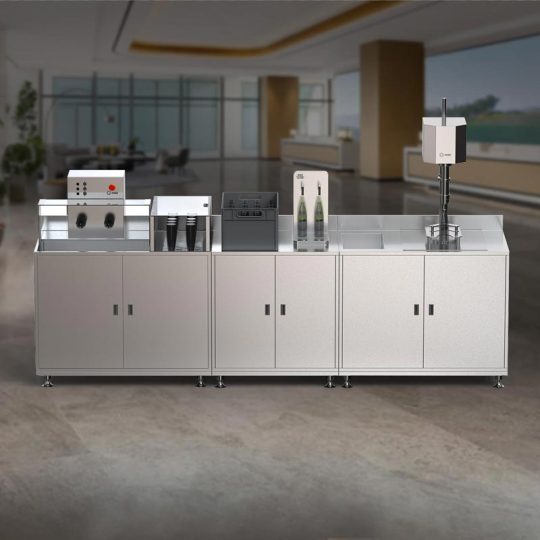
How WAE's Glass Bottling Plants are Helping Hotels Reduce Plastic Bottles and Move Towards Sustainability
In the ever-growing movement toward sustainability, the hospitality industry plays a pivotal role in driving change. WAE, a pioneering name in sustainable drinking water solutions, is leading the charge with its latest innovation—the Glass Bottling Plant. Designed specifically for hotels, this cutting-edge technology offers a revolutionary way to replace plastic bottles with eco-friendly, reusable glass bottles. Here’s how WAE’s innovation is reshaping the hospitality landscape and contributing to a greener planet.
The Problem: Plastic Waste in the Hospitality Sector
Hotels and resorts, renowned for their luxurious experiences, often rely heavily on single-use plastic water bottles to cater to their guests. Unfortunately, this convenience comes at a steep environmental cost, contributing significantly to plastic pollution. With billions of plastic bottles ending up in landfills and oceans every year, the need for a sustainable alternative is more urgent than ever.
The Solution: WAE’s Glass Bottling Plant
WAE’s Glass Bottling Plant offers a comprehensive solution to the plastic waste dilemma in the hospitality sector. This state-of-the-art machine is meticulously designed to rinse, fill, and cap recyclable glass bottles with pure drinking water, ready for use. Let’s delve into the innovative features that make it a game-changer:
Rinsing and Cleaning: The plant begins by mechanically cleaning glass bottles using hot water or detergents. This process ensures thorough sterilization, leaving no room for contamination. The system also allows for customization based on specific requirements.
Drying and Sterilization: Cleaned bottles are dried using air before passing through an advanced LED chamber for further sterilization. This ensures the bottles meet the highest hygiene standards.
Filling and Capping: The sterilized bottles are then filled with hygienic, pure drinking water. The final step involves tightly capping the bottles to prevent leakage and maintain freshness.
Labeling: In the last stage, bottles are labeled or adorned with brand-specific stickers, ready for hotel guests to enjoy.
The Impact: A Leap Towards Sustainability
Hotels equipped with WAE’s Glass Bottling Plant can eliminate the need for single-use plastic bottles, drastically reducing plastic waste. This aligns perfectly with the global push for a circular economy, where resources are reused rather than discarded. By choosing glass bottles, hotels not only enhance their brand image as eco-friendly establishments but also contribute to a healthier planet.
Why Choose WAE?
WAE isn’t just another equipment manufacturer; it’s a sustainability pioneer with over 15 years of expertise. The company’s focus on research and innovation enables it to develop solutions that resonate with the principles of environmental stewardship. Hotels partnering with WAE gain access to:
Proven expertise in sustainable water solutions.
State-of-the-art technology tailored for the hospitality industry.
An opportunity to stand out as leaders in eco-conscious hospitality.
A Step Towards a Greener Future
As guests increasingly favor brands that prioritize sustainability, hotels have a golden opportunity to meet this demand while making a meaningful impact. WAE’s Glass Bottling Plant is more than a machine; it’s a statement—a commitment to reducing plastic waste and embracing a sustainable future.
For hotels, this innovation isn’t just a technical upgrade; it’s a chance to redefine luxury as responsible and eco-friendly. Join WAE in revolutionizing the hospitality sector—one glass bottle at a time.
0 notes
Text
Shaping the Future of Glass Bottle Washing: Seppa Solutions' Innovative Approach to Efficiency and Sustainability
The glass bottle-washing industry is a crucial nexus of sustainability and efficiency, which are at the forefront of industrial innovation as of late. Ever wonder how environmentally friendly glass bottle cleaning and reuse are accomplished? Seppa Solutions, a leader in glass bottle cleaning technology, is providing innovative answers to this query. Their inventions are redefining the industry, not just influencing it.
The Changing Landscape of Glass Bottle Washing
The global movement toward sustainable packaging revolves around glass bottles, which are praised for their durability and ability to be recycled. But historically, cleaning and reusing them has required a lot of resources. Achieving an equilibrium between environmental responsibility and high production demands is a challenge for many manufacturers.
Seppa Solutions has risen to the challenge by creating machines that prioritize sustainability and streamline operations. However, how are they actually accomplishing this?
Cutting-Edge Technology for Maximum Efficiency
By incorporating cutting-edge automation into its bottle-washing systems, Seppa Solutions has greatly decreased manual labor while boosting productivity. What makes their technology unique is this:
High-Speed Operations: Their machines can process thousands of bottles per hour, guaranteeing that production lines maintain a steady pace of growth in demand.
Precision Cleaning: Even in the most difficult bottle designs, sophisticated nozzles, and revolving mechanisms ensure complete cleaning that leaves no residue behind.
User-Friendly Interfaces: Operators can more easily modify settings, keep an eye on performance, and reduce downtime thanks to intuitive controls.
Sustainability at the Core
The effects of industrial processes on the environment are among the most urgent problems. Washing glass bottles in particular uses a lot of chemicals, water, and energy. Seppa Solutions has considered this and incorporated sustainable practices into every facet of their machines:
Water Recycling Systems: Up to 70% less water is used when washing water is reused thanks to sophisticated filtration systems.
Energy Optimization: Modern heat recovery systems make sure that very little energy is wasted while they are operating. Eco-Friendly Cleaning Products: They further lessen their impact on the environment by using systems that work with biodegradable detergents. This dedication to sustainability is in line with international initiatives to reduce industrial waste and fight climate change.
The Benefits of Partnering with Seppa Solutions
What makes Seppa Solutions the ideal choice for manufacturers looking to enhance their glass bottle washing operations?
Customizable Solutions: Every production line is unique, and Seppa Solutions tailors their machines to meet specific requirements.
Cost Savings: By reducing water, energy, and labor needs, businesses can significantly cut operational costs.
Regulatory Compliance: Their eco-friendly systems help manufacturers adhere to stringent environmental regulations with ease.
Long-Term Durability: Built with robust materials, these machines ensure years of reliable service.
A satisfied client noted, “Seppa Solutions didn’t just provide us with a machine; they offered a partnership that transformed our production process.”
Driving Innovation Through Collaboration
According to Seppa Solutions, cooperation is key to the future of glass bottle washing. They actively collaborate with manufacturers to pinpoint problems and jointly develop remedies that deal with particular issues. The business is always ahead of the curve, whether it is creating next-generation cleaning products or incorporating AI for predictive maintenance.
Why It Matters
Seppa Solutions' innovations offer manufacturers more than just short-term advantages. They contribute to a broader vision of sustainability in which industries work in harmony with the environment. By selecting Seppa Solutions, companies are contributing to a greener future in addition to increasing their bottom line.
The Future is Now
How can we make sure that our planet doesn't suffer as a result of industrial efficiency? With its cutting-edge glass bottle washer, Seppa Solutions has offered a definitive solution. They are establishing new standards through their dedication to sustainability and efficiency, demonstrating that environmental responsibility and industrial growth can coexist.
Ready to transform your bottle-washing operations? Partner with Seppa Solutions and step into the future today.
0 notes
Text
A Complete Guide to the Plastic Recycling Process
The plastic recycling process is a vital solution to the global plastic waste crisis. It helps reduce environmental pollution, conserve resources, and promote sustainability. With billions of tons of plastic produced annually, understanding how to reduce plastic waste through recycling is more important than ever. This guide explores the key stages of recycling, types of plastics, and its overall benefits.
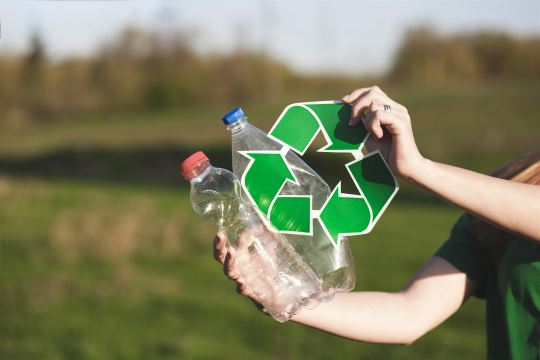
Why Recycle Plastic?
Plastic is versatile and durable but poses significant environmental challenges due to its slow decomposition. Recycling offers a way to:
Reduce Plastic Pollution: Keeps plastic out of landfills and oceans.
Conserve Resources: Saves raw materials like petroleum and natural gas.
Lower Energy Consumption: Recycling plastic uses less energy than manufacturing new materials.
Protect Ecosystems: Reduces harm to wildlife caused by plastic waste.
Stages of the Plastic Recycling Process
Collection
Plastic waste is gathered from homes, businesses, and public recycling bins.
Collection systems vary by region and can include curbside pickup or drop-off points.
Sorting
Plastics are sorted by type and color, often using automated systems like infrared scanners.
Sorting ensures only recyclable plastics enter the next stage of the process.
Cleaning
Contaminants like food residue, labels, and adhesives are removed.
Clean plastics are shredded into smaller pieces for easier processing.
Shredding and Resizing
Plastics are shredded into flakes or pellets, which can be used in manufacturing.
This step improves material handling and prepares the plastic for melting.
Melting and Reforming
Plastic flakes are melted and reformed into new products or raw materials.
Advanced technologies allow for the creation of high-quality recycled plastics.
Manufacturing New Products
Recycled plastics are used to create new items, such as bottles, clothing, or construction materials.
Types of Plastics Commonly Recycled
PET (Polyethylene Terephthalate)
Found in water bottles and food containers.
Easily recyclable and turned into fibers or new containers.
HDPE (High-Density Polyethylene)
Used in milk jugs, detergent bottles, and pipes.
Recycled into durable goods like benches and bins.
LDPE (Low-Density Polyethylene)
Found in shopping bags and packaging films.
Often recycled into trash bags and liners.
PP (Polypropylene)
Used in food containers and automotive parts.
Recycled into industrial materials or storage solutions.
How to Reduce Plastic Waste
Choose Reusable Products: Opt for reusable bottles, bags, and containers instead of single-use plastics.
Recycle Correctly: Follow local guidelines to ensure your plastic waste is properly sorted and recycled.
Support Recycled Products: Buy items made from recycled plastic to encourage demand.
Spread Awareness: Educate others about the importance of the plastic recycling process and reducing waste.
Benefits of the Plastic Recycling Process
Reduces Environmental Impact
Recycling prevents tons of plastic from entering ecosystems.
Saves Energy
Recycling plastic uses 88% less energy than producing new plastic.
Creates Jobs
The recycling industry generates employment opportunities in collection, sorting, and processing.
Supports a Circular Economy
Promotes a sustainable system where materials are continuously reused.
The Future of Plastic Recycling
Innovations in technology are making plastic recycling processes more efficient. Chemical recycling, for example, can break down plastics to their original molecules, creating higher-quality recycled materials. Governments and industries worldwide are investing in ways to reduce plastic waste and improve recycling rates.
By participating in plastic recycling and adopting habits to reduce plastic use, we can make a significant impact on the planet's health.
0 notes
Text
we are at the point of hiding toilet paper, laundry detergent, and now paper towels from our roommates because they're wasteful and inconsiderate and are constantly using up the things we buy and not replacing them until we leave the box empty and they eventually HAVE to buy more
it started with the toilet paper. my partner and I both have issues with hemorrhoids and thus bought more expensive toilet paper as it's usually softer and is less likely to tear up our assholes. we can't afford to buy the fancy toilet paper for the whole house.
next it was the laundry detergent. my partner and I had just bought a full container of tide pods when we put together that it was likely the detergent that was giving us both weird skin itching/rashes and had to switch to gain pods. we told our roommates to keep using the tide pods, that we got the gain pods for us for skin sensitivity issues. cool no problem. I used the gain pods one time and when I went back the container was already almost empty. checked the tide container thinking they got confused. nope, that one was empty too. now I'm confused because how the fuck did they go through that much detergent that fast?? anyway we left two gain pods in that container as a decoy and bought a new container for our room.
its only typing this out that I'm realizing how much we spend in this house.
anyway we realized the paper towels are also going extremely fast so now I guess we have to hide those too. we bought a pack of six rolls like two weeks ago. I think we only used two of them ourselves.
it's a ridiculous sort of consumption without any awareness. how are they using this much?? where is it all going???
one time I bought some simple green cleaner and only got a couple uses out of it and now when I occasionally traverse into their bedroom looking for dirty dishes I see its empty bottle staring up at me from the corner of their floor, whispering "father why? how could you let them take me? you could have reused my bottle but now I am garbage. father why have you abandoned me"
need better roommates.
0 notes
Text
Good for California.
So... all those little numbers you see printed on the bottom with the recycle arrows logo... they do NOT mean those plastics are financially feasible or even possible to recycle at any cost. They just stamped them to make consumers feel better. They simply identify different plastic types, only two types get recycled. (downcycled)
One method that would reduce a huge source of single use plastics, that is surprising we haven't seen much of yet, is bulk sales of liquid commodities like laundry detergent, shampoo, dish soap, hand sanitizer, etc. Put in barrels and just sell it by weight.
If we can sell foods like rice, grains, pasta, pancake mix, candies, etc, which are all perishable in bulk, then soaps and liquids should be a breeze in comparison. Just bring your own container.
One guess why we don't see this is that virgin plastic containers cost so little, cents or less. Saving the cost of the plastic is a negligible savings. (Still, even pennies add up to the corporate bottom line.) The other hurdle is logistics. Liquid products are heavy. But they use those hand fork lifts for giant loads in stores all the time. They could place a barrel on wheels or design one specifically for barrels of liquid. A simple hand pump on the top of a barrel would work.
Again, it won't bring the product price down but environmentally conscious people would want to reuse those GIANT laundry detergent bottles and other plastic bottles to refill all the liquid products that get thrown away every few weeks I throw yet another one away.
States could also tax products in single-use plastic to artificially increase the price and thus discourage consumption of those.
0 notes
Text
Three Effective Tips to Reduce the Amount of Waste Generation
This fact will surely surprise you that on a per-person basis, Australia is the biggest producer of garbage in the world. The garbage and waste that we generate impact nature in multiple ways and in all situations, bulk waste collection services must be availed. Without these services, our environment suffers a lot like the nature starts getting depleted and more non-renewable resources are required for waste management. According to the experts in waste collection in Adelaide, reducing the amount of waste generated from our homes and offices is very easy. The only stipulation is that those interested in this must follow the waste minimisation strategies and hierarchy discussed here.
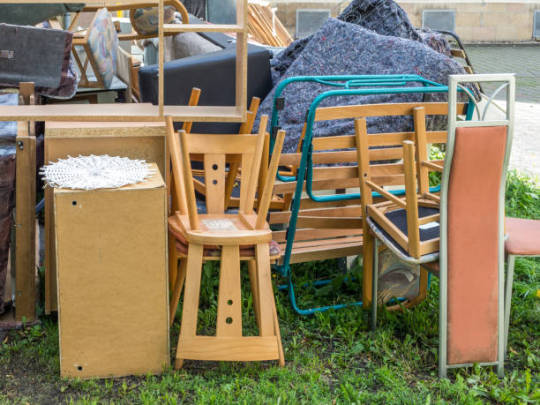
STEP 1
REDUCING THE AMOUNT GENERATED
The most effective step regarding waste management is reducing the amount of waste we generate. This can be done in different ways, such as using as many things as possible rather than simply throwing them in the garbage bin. Similarly, setting up a compost bin for fruits and vegetable scraps will help you reduce the amount of food waste going into your dustbin. Other steps can also be taken, such as using reusable cloth nappies that can help you reduce the waste sent to our landfill sites daily.
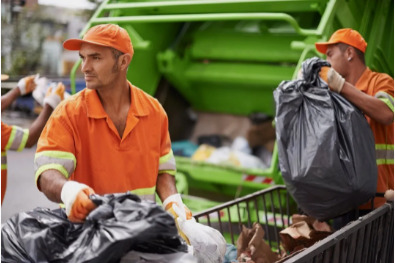
STEP 2
REUSING THE PRODUCTS AS MUCH AS POSSIBLE
You can also opt to reuse the items as much as possible to reduce the amount of waste collection in Adelaide. Experts of bulk waste collection services recommend several tips for this, such as using reusable shopping bags rather than plastic bags. These reusable items greatly reduce the amount of garbage we generate regularly. Another option is switching to the reusable version of single-use items, including rechargeable batteries, razors, nappies, and so on. You can also consider buying or swapping your old clothes with friends and family. This is a cheap and easy way to reduce the garbage. You can consider selling or donating the furniture to those needing it. You can also hold a garage sale, where you will not just sell your old furniture but also earn some quick bucks while reducing the amount of bulk waste collection.
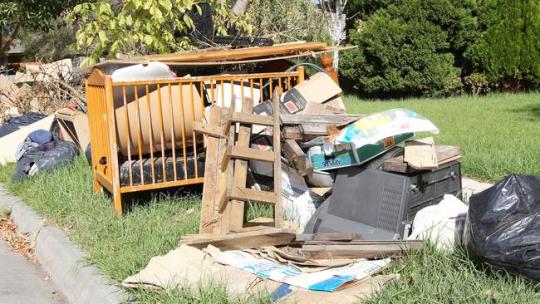
STEP 3
RECYCLING THE PRODUCTS
Recycling is considered the most effective step in reducing the amount of waste collection in Adelaide. According to the experts in waste collection services, more than 70% of the garbage or items sent as waste materials can be recycled. This mainly includes paper, cardboard, metal cans, plastic bottles, containers, glass bottles, jars, etc. Here is a complete list of what can be recycled by the experts in waste collection services.
Aeroguard Cans
Baby formula tins
Bottle tops (preferred separated from bottle)
Bug bomb spray cans
Coffee tins
Cooking oil spray cans
Deodorant spray cans
Drink cans
Fly spray cans
Foil pie trays
disposable food cans
Food cans
Insect spray cans
Hair spray cans
Milo tins
Lids (preferred separated from bottle or jar)
Olive oil cans
Paint tins (empty and under 15 litres)
Pet food cans
Cardboard packaging
Cereal boxes
Egg cartons
Fresh milk and juice cartons
Greeting cards
Junk mail
Laundry powder boxes
Office and computer paper
Pizza boxes (clean)
Phone books
Wrapping paper (not foil or plastic)
Biscuit trays
Body wash bottles
Detergent bottles
Cleaning spray bottles
Cream containers
Drink bottles
Ice cream tubs
Laundry liquid bottles
Lids (separated from bottle, container or jar)
Margarine and butter tubs
Sauce bottles
Shampoo and conditioner bottles
Strawberry and tomato punnets
Take-away food containers
Yoghurt tubs
Beer bottles
Jam jars
Juice bottles
Medicine jars
Pickle jars
Sauce bottles
Sauce jars
Spread jars
Wine bottles
#bulk waste collection#waste collection Adelaide#waste collection services#waste management#Skip garbage bin#waste collection in Adelaide#Waste Removal services#Waste and recycling#waste collection experts#Waste Rubbish services#Reduce bulk waste
0 notes
Text
How to Choose the Right Plastic Containers for Your Needs?
Selecting the right reusable plastic containers is essential for organizing, storing, and preserving items, whether it’s for food, household goods, or other purposes. Here’s a comprehensive guide to help you make an informed decision based on your specific needs.
Food Storage: If you’re looking for containers to store food, choose food-grade plastics that are safe, durable, and resistant to stains and odors.
Non-Food Storage: For items like toys, tools, or craft supplies, focus on containers that are sturdy and appropriately sized.
Polyethylene Terephthalate (PET or PETE): Commonly used for water bottles and food containers. It's lightweight, clear, and recyclable but not ideal for reuse or long-term storage.
High-Density Polyethylene (HDPE): Known for its strength and resistance to moisture. It’s used in milk jugs, detergent bottles, and some food containers. It's a good option for both food and non-food storage.
Polyvinyl Chloride (PVC): Used in food wrap and plumbing pipes. It’s durable but not recommended for food storage due to potential chemical leaching.
Low-Density Polyethylene (LDPE): Found in squeeze bottles and plastic bags. It’s flexible and resistant to moisture, making it suitable for food storage.
Polypropylene (PP): Commonly used in yogurt containers, bottle caps, and straws. It’s heat-resistant, making it microwave and dishwasher safe, ideal for food storage.
Choosing the right plastic containers depends on your specific needs, including the type of items you plan to store, the environment in which they will be used, and your budget. By considering factors such as material, size, sealing mechanisms, and temperature tolerance, you can select containers that are both functional and safe. Investing in quality containers that meet your requirements will help you stay organized and ensure that your stored items remain in good condition.
0 notes
Text
Price: [price_with_discount] (as of [price_update_date] - Details) [ad_1] Introducing the reusable cotton water filter tap cover - a sustainable and convenient solution for purifying your drinking water. This innovative product attaches directly to your tap, allowing you to enjoy clean, filtered water with every pour. Crafted from high-quality cotton, this filter effectively removes impurities, sediments, and chlorine, ensuring a refreshing taste and improved water quality. Its compact design fits most standard taps, making it a versatile choice for your kitchen or bathroom. Effortlessly replaceable. Experience the convenience of filtered water at home while embracing a more sustainable approach to hydration. Eco-Friendly & Sustainable: Reduce waste by eliminating the need for single-use plastic filters. This reusable water filter tap covers can be washed and reused multiple times, making it a greener alternative for the eco-conscious consumer. Why You Need This: Perfect for health-conscious individuals and families, the Reusable cotton water filter bag offers a natural and cost-effective way to improve the quality of your tap water. Whether you’re looking to filter water for cooking, drinking, or washing, this product delivers consistent results without the recurring expense of disposable filters. Why You Need This: Do you notice cloudy water or an odd taste when you drink from the tap? Have you found yourself constantly buying bottled water or disposable filters, only to throw them away after a few uses? The Reusable Cotton Water Filter Tap Cover Bag solves these problems by offering a sustainable, cost-effective way to enjoy cleaner water every day. Its natural cotton fabric acts as a barrier, catching particles that could otherwise make their way into your cup.Perfect for Everyday Use: For Clean Cooking Water: Attach it to your kitchen tap while rinsing vegetables or filling pots, ensuring that your meals are prepared with clean water. Refreshing Drinks: Whether you're brewing tea or filling a water bottle, the cotton filter ensures you're drinking crisp, clear water free from contaminants. The Everyday Essential: From your morning coffee to washing your fruits and veggies, the Reusable Cotton Water Filter Tap Cover Bag is an essential addition to your kitchen. It's a must-have product for families, busy professionals, and eco-conscious individuals who want to improve their water quality in a simple, affordable way. ♥ Reusable Design: This Cotton Water Filter Tap Cover Can Be Used Repeatedly, Providing a Sustainable and Cost-Effective Solution. ♥ Versatile Compatibility: Designed with a Universal Fit, It Can Accommodate Most Standard-Sized Taps and Faucets, Providing a Convenient Solution for Any Home, Office, or Outdoor Use. ♥ Natural Filtration: Made From High-Quality Cotton, This Filter Captures Dirt, Rust, and Other Particles, Ensuring You Get Clearer Water Every Time. ♥ Easy Installation: Simply Place the Cover Over the Tap and Tie It According Your Tap Size. Easy to Install, Remove, and Clean, Making It a Hassle-Free Addition to Your Daily Routine. ♥ Easy Maintenance: Simply Wash the Bag with Mild Detergent, Air Dry, and Reuse. It’s that Simple to Maintain Your Filter and Ensure It Lasts. [ad_2]
0 notes
Text
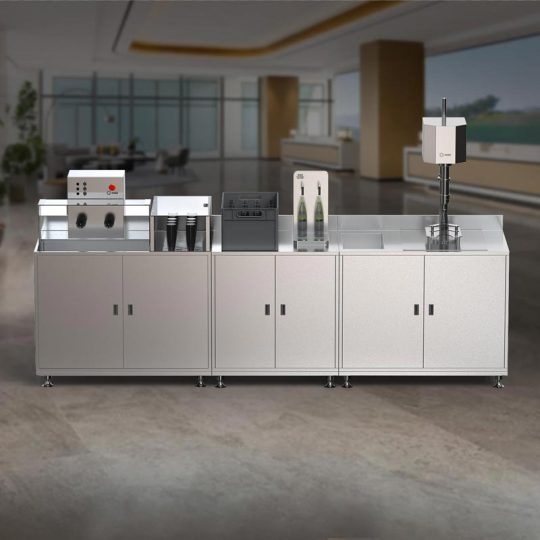
WAE’s Glass Bottling Plant for Hotels replaces Plastic Bottles!
WAE, an expert in water and its reuse is a complete sustainable drinking water solution-providing company, committed to this indispensable resource called “water” of the planet, Earth. It’s an Original Equipment Manufacturer (OEM) with a firm foundation in scientific research and innovative technologies with a focus and collegial approach that enables it to develop completesustainable drinking water solutions that sync with the principles of circular economy and help it to become an active participant in the resource revolution.
The company is well-known in the industry for providing efficient and complete drinking water solutions as well asother vendingmachines and has recently come up with its latest launch, the glass bottling plant, all set to transform the hospitality sector by introducing sustainable and reusable glass bottles, eradicating the use plastic water bottles or jars for good. In fact, the above is also the main motto of the company for launching this scientifically designed glass bottle filling plant which will certainly help in minimizing plastic waste.
The Unique Concept: WAE’s glass bottling plant for hotels has certainly revolutionized the hospitality sector by its innovative, hi-tech, state-of-the art technology machine to mechanically rinse, clean, fill and cap the recyclable glass bottles with pure drinking water, ready to use. Only the bottles have to be manually placed on the machine in an inverted position for cleaning and rinsing purposes with hot water or detergents, and this process is also customizable. Then these cleaned & inverted glass water bottles pass through a conveyor belt to get dried up by air. It is after the execution of all these processes that the refillable glass bottles pass through the LED chamber for further cleaning and sterilization.
The bottles the pass through the filling stage where they are filled with clean and hygienic water for drinking purposes. The bottles are then screened or inspected manually in the next stage. Then these small glass water bottles are capped and screwed tightly to avoid any leakage. The last stage is the labelling or putting stickers on the bottles. Thus, this technologically advanced Glass Bottle Filling Plant (GBFP) is undoubtedly the best choice for the hospitality sector and can be ideally used in all luxury hotels, restaurants and resorts. Moreover, WAE, with a vast experience and expertise of more than 15 years in providing complete, sustainable drinking water solutions can be ideally referred to as the one of the best glass bottling plant manufacturer of India!
Glass bottling plant, glass bottling plant for hotels, glass bottling water plant, glass bottle filling station, rinsing, filling and capping machine, glass bottling plant manufacturer, glass water bottles, minimizing plastic waste, wae
FOR MORE:-https://www.waecorp.com/glass_bottling_plant
0 notes